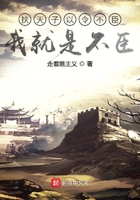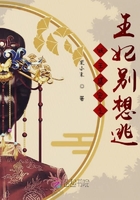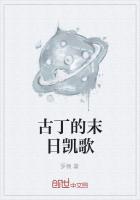Gringoire is a play very different from M. De Banville's other dramas, and it is not included in the pretty volume of "Comedies"which closes the Lemerre series of his poems. The poet has often declared, with an iteration which has been parodied by M. Richepin, that "comedy is the child of the ode," and that a drama without the "lyric" element is scarcely a drama at all. While comedy retains either the choral ode in its strict form, or its representative in the shape of lyric enthusiasm (le lyrisme), comedy is complete and living. Gringoire, to our mind, has plenty of lyric enthusiasm; but M. De Banville seems to be of a different opinion. His republished "Comedies" are more remote from experience than Gringoire, his characters are ideal creatures, familiar types of the stage, like Scapin and "le beau Leandre," or ethereal persons, or figures of old mythology, like Diana in Diane au Bois, and Deidamia in the piece which shows Achilles among women. M. De Banville's dramas have scarcely prose enough in them to suit the modern taste. They are masques for the delicate diversion of an hour, and it is not in the nature of things that they should rival the success of blatant buffooneries. His earliest pieces--Le Feuilleton d'Aristophane (acted at the Odeon, Dec. 26th, 1852), and Le Cousin du Roi (Odeon, April 4th, 1857)--were written in collaboration with Philoxene Boyer, a generous but indiscreet patron of singers.
"Dans les salons de Philoxene Nous etions quatre-vingt rimeurs,"M. De Banville wrote, parodying the "quatre-vingt ramuers" of Victor Hugo. The memory of M. Boyer's enthusiasm for poetry and his amiable hospitality are not unlikely to survive both his compositions and those in which M. De Banville aided him. The latter poet began to walk alone as a playwright in Le Beau Leandre (Vaudeville, 1856)--a piece with scarcely more substance than the French scenes in the old Franco-Italian drama possess. We are taken into an impossible world of gay non-morality, where a wicked old bourgeois, Orgon, his daughter Colombine, a pretty flirt, and her lover Leandre, a light-hearted scamp, bustle through their little hour. Leandre, who has no notion of being married, says, "Le ciel n'est pas plus pur que mes intentions." And the artless Colombine replies, "Alors marions-nous!" To marry Colombine without a dowry forms, as a modern novelist says, "no part of Leandre's profligate scheme of pleasure." There is a sort of treble intrigue. Orgon wants to give away Colombine dowerless, Leandre to escape from the whole transaction, and Colombine to secure her dot and her husband.
The strength of the piece is the brisk action in the scene when Leandre protests that he can't rob Orgon of his only daughter, and Orgon insists that he can refuse nothing except his ducats to so charming a son-in-law. The play is redeemed from sordidness by the costumes. Leandre is dressed in the attire of Watteau's "L'Indifferent" in the Louvre, and wears a diamond-hilted sword.
The lady who plays the part of Colombine may select (delightful privilege!) the prettiest dress in Watteau's collection.
This love of the glitter of the stage is very characteristic of De Banville. In his Deidamie (Odeon, Nov. 18th, 1876) the players who took the roles of Thetis, Achilles, Odysseus, Deidamia, and the rest, were accoutred in semi-barbaric raiment and armour of the period immediately preceding the Graeco-Phoenician (about the eighth century B.C.). Again we notice the touch of pedantry in the poet.
As for the play, the sombre thread in it is lent by the certainty of Achilles' early death, the fate which drives him from Deidamie's arms, and from the sea king's isle to the leagues under the fatal walls of Ilion. Of comic effect there is plenty, for the sisters of Deidamie imitate all the acts by which Achilles is likely to betray himself--grasp the sword among the insidious presents of Odysseus, when he seizes the spear, and drink each one of them a huge beaker of wine to the confusion of the Trojans. {1} On a Parisian audience the imitations of the tone of the Odyssey must have been thrown away. For example, here is a passage which is as near being Homeric as French verse can be. Deidamie is speaking in a melancholy mood:
"Heureux les epoux rois assis dans leur maison, Qui voient tranquillement s'enfuir chaque saison -L'epoux tenant son sceptre, environne de gloire, Et l'epouse filant sa quenouille d'ivoire!
Mais le jeune heros que, la glaive e son franc!
Court dans le noir combat, les mains teintes de sang, Laisse sa femme en pleurs dans sa haute demeure."With the accustomed pedantry, M. De Banville, in the scene of the banquet, makes the cup-bearer go round dealing out a little wine, with which libation is made, and then the feast goes on in proper Homeric fashion. These overwrought details are forgotten in the parting scenes, where Deidamie takes what she knows to be her last farewell of Achilles, and girds him with his sword:
"La lame de l'epee, en sa forme divine Est pareille e la feuille austere du laurier!"Let it be noted that each of M. De Banville's more serious plays ends with the same scene, with slight differences. In Florise (never put on the stage) the wandering actress of Hardy's troupe leaves her lover, the young noble, and the shelter of his castle, to follow where art and her genius beckon her. In Diane au Bois the goddess "that leads the precise life" turns her back on Eros, who has subdued even her, and passes from the scene as she waves her hand in sign of a farewell ineffably mournful. Nearer tragedy than this M. De Banville does not care to go; and if there is any deeper tragedy in scenes of blood and in stages strewn with corpses, from that he abstains. His Florise is perhaps too long, perhaps too learned; and certainly we are asked to believe too much when a kind of etherealised Consuelo is set before us as the prima donna of old Hardy's troupe:















